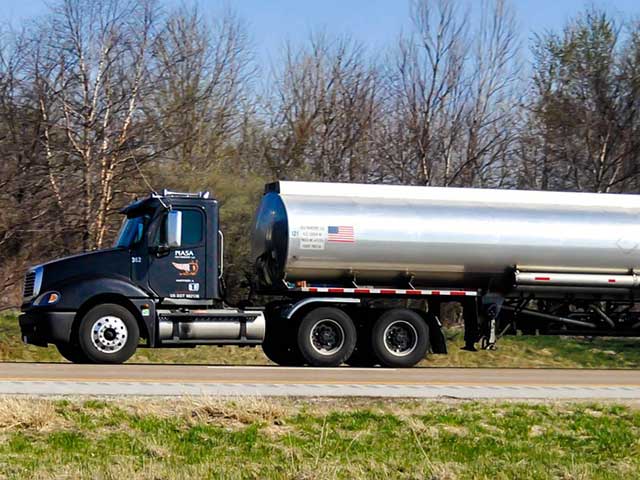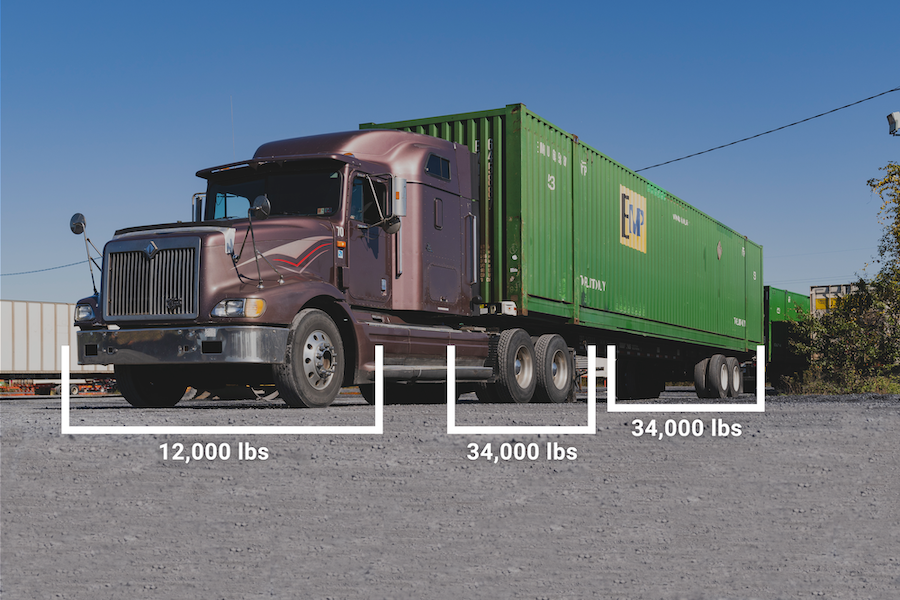A semi-truck can carry up to 80,000 pounds of weight. This weight includes the truck, trailer, and cargo.
Semi trucks are essential in the transportation industry for carrying goods across long distances. These powerful vehicles are designed to haul a significant amount of weight, typically up to 80,000 pounds, which includes the truck, trailer, and cargo. Understanding the capabilities and limitations of semi trucks in terms of weight capacity is crucial for businesses and industries reliant on freight transportation.
By adhering to weight regulations and ensuring proper distribution of cargo, businesses can optimize their logistics operations and ensure the safe and efficient transportation of goods. We will explore the weight carrying capacity of semi trucks and the factors that influence their hauling capabilities.

Credit: www.terrybryant.com
Navigate As You Want:
Factors Affecting Weight Capacity
Semi trucks, also known as tractor-trailers or big rigs, have different weight capacities depending on various factors. One of these factors is the truck’s design, which includes the materials used, the size of the engine, and the strength of the chassis. The axle configuration is another factor that affects weight capacity. Most semi trucks have multiple axles to distribute the weight evenly, with each axle having a maximum weight rating. Legal limits also come into play when determining how much weight a semi truck can carry. Each state and country has specific laws and regulations regarding weight restrictions, including maximum gross vehicle weight and axle weight limits. It is crucial for truck drivers and freight companies to adhere to these legal limits to ensure safety on the road. By considering truck design, axle configuration, and legal limits, operators and drivers can determine how much weight a semi truck can safely carry.
Understanding Gross Vehicle Weight Rating (gvwr)
Gross Vehicle Weight Rating (GVWR) is the maximum weight a truck can safely carry, including its own weight, cargo, and passengers. The GVWR includes the truck’s chassis, body, engine, fuel, fluids, and accessories. It helps ensure the truck operates within safe limits, thus enhancing road safety. Monitoring GVWR is crucial for preventing overloading and maintaining vehicle performance. Weight distribution and proper loading play key roles in maximizing a truck’s efficiency and minimizing wear and tear. Understanding the GVWR is imperative for any semi-truck operator to comply with regulations and safeguard the truck’s longevity and effectiveness.
Calculating Weight Limits
When it comes to calculating weight limits for semi trucks, it’s essential to understand the axle weight limits, the bridge formula, and the federal bridge gross weight formula. The axle weight limits determine how much weight can be distributed on each axle of the truck. Understanding the bridge formula is crucial to ensure the truck’s weight is evenly distributed and doesn’t exceed legal limits. The federal bridge gross weight formula is used to calculate the maximum allowable weight for trucks based on axle spacing. By considering these factors, truck drivers and companies can ensure they are safely and legally carrying the maximum weight allowed by regulations.

Credit: www.jdpower.com
Safety Considerations
A semi truck has a impressive capacity for carrying heavy loads, but it’s important to consider safety factors when determining how much weight it can handle. Braking systems are crucial in ensuring the truck can safely come to a stop, preventing accidents and reducing wear on the brakes. Tire load capacity is another vital consideration, as overloading the tires can lead to tire blowouts and potential loss of control. The steering and suspension of a semi truck also play a significant role in maintaining stability and control while carrying heavy loads. It is crucial to keep these components in good condition and ensure they are capable of bearing the weight being carried. Regular maintenance and inspections are essential to identify any issues and address them promptly, ensuring the truck can safely handle its designated weight capacity.
Specialized Weight Requirements
In the world of transportation, semi trucks play a crucial role in carrying heavy loads across long distances. One of the key factors that truckers and transportation companies need to consider is the weight capacity of these vehicles. Specialized weight requirements exist to ensure the safety of both the drivers and the roads they travel on.
Transporting hazardous materials presents additional challenges. These substances are classified as either flammable, toxic, corrosive, or explosive. Each category has its own set of regulations and restrictions to prevent accidents and protect the environment. Compliance with these guidelines is crucial to prevent any potential disasters.
For oversized and overweight loads, special permits and escorts may be required. These types of shipments exceed the standard weight and size limitations, necessitating extra precautions to ensure safe transportation. The process involves obtaining permits, adhering to designated routes, and implementing additional safety measures.

Credit: draynow.com
Frequently Asked Questions For How Much Weight Can A Semi Truck Carry
How Much Weight Can A Semi Truck Carry?
A semi truck can typically carry a maximum weight of 80,000 pounds, including the weight of the truck itself. However, there are certain regulations and restrictions in each state that determine the maximum weight a truck can legally carry on public roads.
How Are The Weight Limits Determined For Semi Trucks?
Weight limits for semi trucks are determined by various factors, including federal regulations, state laws, and the capacity of the truck’s axles, tires, and suspension system. These limits are enforced to ensure the safety of the truck, its driver, and other road users.
Are There Different Weight Limits For Different Types Of Semi Trucks?
Yes, different types of semi trucks may have different weight limits based on their design and purpose. For example, a long-haul truck may have a higher weight limit than a local delivery truck. It is important for truck drivers and trucking companies to know and adhere to the specific weight limits for their type of truck.
Can A Semi Truck Exceed The Maximum Weight Limit?
Exceeding the maximum weight limit for a semi truck is strictly prohibited and can result in fines, penalties, and safety hazards. It is essential for truck drivers to properly load and distribute the weight of their cargo to ensure that they are within the legal weight limit and maintaining the safety and stability of their truck.
Conclusion
The weight that a semi truck can carry depends on various factors such as its configuration, axle limits, and legal requirements. It is crucial for truck drivers and operators to understand these limits to ensure proper transportation of goods and maintain road safety.
By following the regulations and ensuring accurate weight distribution, the trucking industry can continue to provide efficient freight transportation without compromising on safety.





